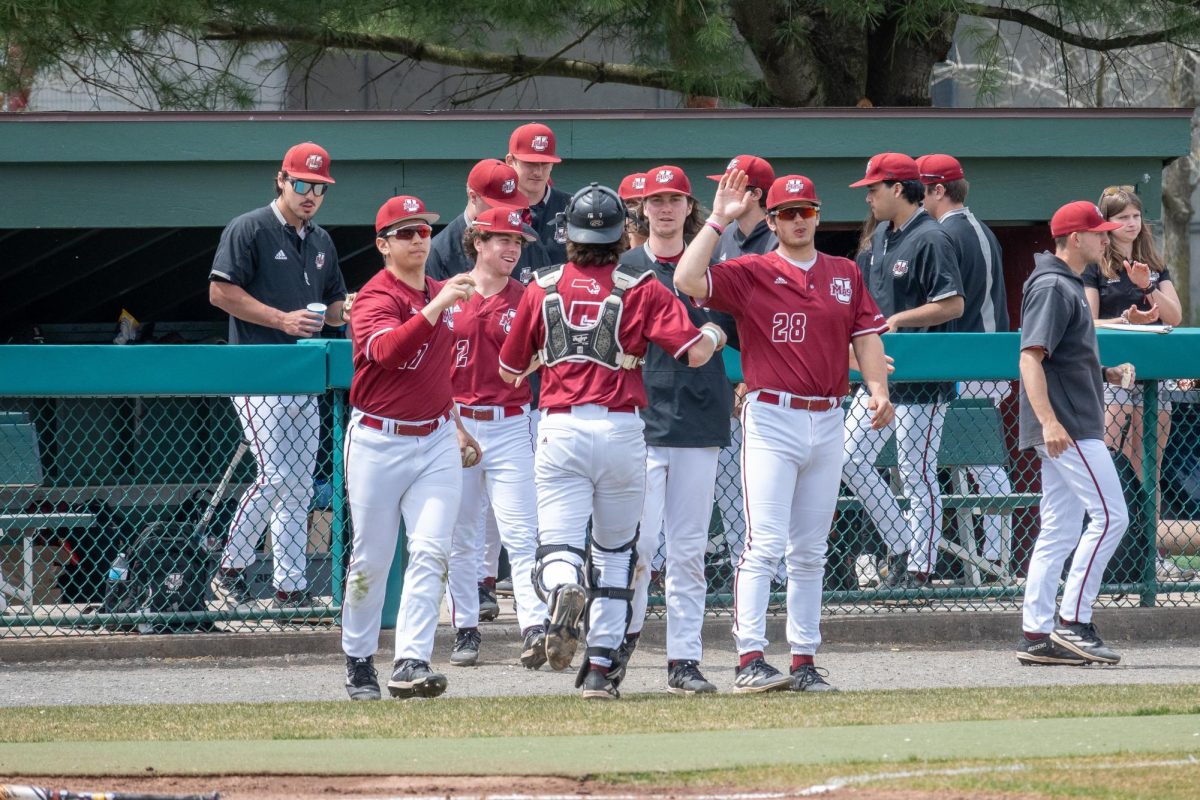In 2017, former President Donald Trump declared the opioid crisis a public health emergency in response to the alarming rise in opioid-related deaths and addiction across the United States.
A major driver of this crisis stems from limited access to effective, FDA-approved medications called naltrexone, buprenorphine and methadone. These medications are often used as part of a comprehensive treatment approach that also involves counseling, behavioral therapy and support groups.
Individuals with opioid use disorder (OUD) are often entangled within the criminal justice system to varying degrees, facing an elevated risk of overdose and other negative health consequences compared to the general population.
Courts are a key domain of the criminal justice system that can offer a potential to connect OUD-afflicted individuals with treatment options. At the University of Massachusetts, assistant professor of health promotion and policy Elizabeth Evans helps oversee the Holyoke Early Access to Recovery and Treatment (HEART) program, in collaboration with the Holyoke District Court.
“The court is here to serve the public, it’s not just here to punish people or incarcerate them,” Evans said. “One way to do that is to bring public health knowledge and medicine to the places where people with addiction tend to end up, which is the justice system.”
Launched in January 2021, HEART works to provide same-day access to medications and other treatment for OUD. Within an hour of appearing before the judge, participants are screened for OUD to determine their eligibility to work with a clinician and enter treatment.
The program hopes to change how the court provides access to health care with the curation of a more direct service to existing health and social services in the Holyoke and Chicopee areas, Evans explained.
This can make it “very easy,” she said, for people to receive help as they appear before the judge.
HEART employs caseworkers through the Gándara Center — an agency that provides bilingual behavioral health and preventative services — to educate defendants in the courtroom and walk them to a nearby rehabilitation center or clinic afterwards. This way, they can combat the potential risk of an overdose prior to one’s court hearing and provide Spanish language translation as well.
Upon first contact, the court mails a one-page letter about HEART to all prospective participants prior to their appearance, which includes individuals with nonviolent offenses, OUD and existing mental health conditions. The letter specifies that participation in the program is voluntary and that their decision will not affect their criminal proceeding.
In conjunction with Evans, current research fellow and former epidemiology master’s student Kiel McGowan provides administrative support for the program.
“The big thing for us is like, this population is one that doesn’t seek health care by themselves often,” McGowan said. “What you have to do is bring it to them, where they have to be…these are areas that are easier for us to reach them.”
Treatment can vary from short-term overdose prevention to long-term recovery. As McGowan put it, “There’s a myriad of things…you can’t just do one thing and it’s gonna fix [everything], you have to attack it at all the levels.”
The initial structure of the program revolves around three student interns stationed in the court each week, where they connect with potential participants to discuss their options that include meeting with a peer recovery specialist or a clinician.
In the spring of last year, Evans explained that her student interns had the opportunity to interview defendants prior to their court appearances to gauge their opinions of the pilot program.
“Here’s a chance where now you have students who can go there and see public health in action…so it’s a great learning space for everyone,” she said. “The students learn a lot but I think they bring something to the program that helps others think differently.”
Following a program evaluation, Evans found that a total of 498 out of the original 1,040 participants who appeared for their court arraignment were eligible for participation. Out of this eligible group, 270 participants spoke with a recovery specialist prompting four different outcomes. The other half did not speak with a recovery specialist.
Evans added that a majority of her projects encompass the carceral-legal system; outside of HEART, she researches evidence-based treatment for OUD inside of county jails in the state. A common thread in these programs, Evans noted, is that people “don’t wait for the health care, but that the health care comes to them.”
Traditionally, jails and prisons in the U.S. have not maintained access to these medications, creating a gap in treatment. But a 2018 state law mandated that county jails deliver medication for OUD-inflicted inmates, with the Franklin County Sheriff’s Office serving as the first in the nation to provide access to all three.
“No one was talking about public health then as far as I remember,” Evans said, in reference to her undergraduate position as a research assistant in San Diego, Calif. “It was really understanding about the war on drugs and zero tolerance policies.”
In a report published by the National Judicial Opioid Task Force, they found that courts in particular are “not aware of medication-based treatment and only 36 percent of approved treatment facilities offer at least one type of FDA-approved medication.”
Assessing the diverse needs of individuals and families affected by OUD can prove challenging, given the multitargeted approach needed to address it. Unlike typical drug courts, opioid intervention courts utilize a public health model. While only a few have been implemented throughout the U.S., starting in Buffalo, N.Y., Evans posed the question: “How can the court better help save their lives, ultimately, and not just be concerned about public safety?”
‘This has never happened before’
UMass faculty and students are just one piece of the puzzle. At the forefront of the HEART program is Judge William Hadley, an alum of the University and Holyoke native.
Prior to the pandemic, Hadley learned that various defendants would appear in court and overdose on that same day or the day after. He attested to the vivid changes he has noticed over time, where many people appearing before him were young men.
This furthered Hadley’s curiosity, where he recognized that the court did not serve as a place of mediation for defendants prior to and upon their release. The lack of support can create a high-risk period for overdose-related deaths among defendants, said Hadley. Through this initiative, he intends for the court and associated caseworkers to play a more supportive role in the treatment process.
“Our immediate goal was that people don’t have to wait months or weeks to potentially get treatment,” he explained. “It can be kind of confusing [to navigate]…so if there are folks who could help them make sense of the healthcare system, that’s a really useful role to play.”
Serving as a judge for nearly 18 years, he noted that since the program’s inception, there were six different occasions where random participants visited the court, sharing with him their gratitude towards the recovery process. “This has never happened before,” Hadley said.
Hadley added that the court received a $1 million dollar federal grant from the Department of Justice to expand their work, which can entail full-time employment of recovery coaches and hiring of additional staff to mitigate issues related to mental health, homelessness and job training. The program will also expand to the Chicopee District Court.
For the upcoming year, Evans and her team are working to collect feedback as the majority of their existing data is rooted in anecdotal evidence. Following further data collection, Evans hopes to understand how long-term outcomes will manifest in participants and affect their decision on whether or not to stay in recovery.
“I guess for me it’s about seeing institutions change and embrace their public health approach,” Evans said. “That’s a big and significant change that I didn’t think would happen in my lifetime, honestly.”
Olivia Capriotti can be reached at [email protected] and followed on X @capriottiolivia.




















